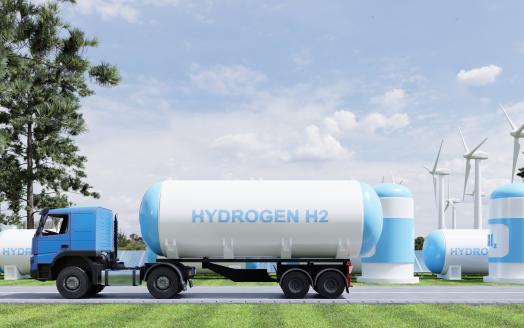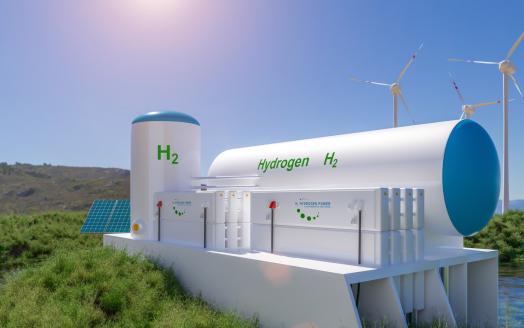Launch of the International Hydrogen Trade Forum to accelerate global hydrogen flows
Goa, India - On July 22, 2023, during the 14th Clean Energy Ministerial (CEM14) Meeting, a historic joint declaration was established by Australia, Brazil, Canada, Chile, Germany, Japan, Saudi Arabia, South Korea, The Netherlands, United Arab Emirates, United Kingdom, United States, Uruguay and the European Commission on behalf of the European Union. These governments have united under the CEM’s flag with one aim: to accelerate international hydrogen trade. This significant milestone was marked by the launch of the International Hydrogen Trade Forum (IHTF), which will provide a unique platform to foster the dialogue between a wide group of governments on the nascent international hydrogen market.The governments acknowledge the pressing need to reduce greenhouse gas emissions and address the challenges of climate change, aligning their efforts with the Paris Agreement. They recognize the vital role that hydrogen will play in shaping the global energy mix and building resilient economies. Furthermore, the governments understand the potential it has in diverse applications to achieve decarbonization, such as heavy transport, industry, power generation, aviation and shipping.Emphasizing the importance of establishing international hydrogen supply chains, also known as “trade corridors,” the governments aim to transport substantial volumes of clean energy from regions with abundant renewable resources and geological CO2 storage potential to areas with limited access. To meet the increasing global demand, they highlight the necessity of accelerating investments across the entire hydrogen value chain.The joint declaration underscores the significance of non-discriminatory market access and participation in international hydrogen trade in the emerging hydrogen market. Global cooperation and coordination are identified as critical elements to share valuable knowledge, experiences, best practices, and promote research, innovation, and demonstration. It is also crucial that any measures taken in the realm of international hydrogen trade conform to the rules of the World Trade Organization (WTO).In pursuit of these objectives, the governments express their collective determination to establish the International Hydrogen Trade Forum as an inter-governmental forum, facilitating collaboration between potential future hydrogen importing and exporting countries, as well as synchronising priority actions of decision-makers and industrial leaders through public-private action plans. The Forum, therefore, aims to accelerate international hydrogen trade, reduce barriers, and foster productive market conditions.Additionally, the governments commit to supporting the Sustainable Development Goals by encouraging policies and regulations that promote the production, consumption, and trans-border trade of hydrogen as a reliable, clean, and vital solution within the global energy system. They will work on developing and implementing policies to mitigate potential negative impacts associated with the production of hydrogen solely for export.The exchange of knowledge and expertise related to infrastructure development necessary for hydrogen trade among the forum’s member governments will be encouraged. Furthermore, the forum will facilitate the dialogue between hydrogen producers and consumers, building upon existing studies and the work of other relevant organizations, with the aim of recommending necessary political actions.“The UAE is delighted to co-chair the IHTF with the Netherlands, creating a coalition of first-mover governments committed to fostering global trade in hydrogen and derivatives through international cooperation and public-private action. The mission of the IHTF is well-aligned with our National Hydrogen Strategy and the key priorities for COP28 Presidency, including unlocking cross-border hydrogen trade corridors and identifying priority actions for governments and industry to advance from announcements to implementation on the ground,” said H.E. Suhail Al Mazrouei, Minister of Energy and Infrastructure, United Arab Emirates.Minister of Climate and Energy Policy, Mr. Rob Jetten from the Netherlands stated “Effective cooperation between governments and companies is essential to get the trade corridors up and running. It is an honor to be initiating this forum together with the United Arab Emirates providing a platform for such an important dialogue between future hydrogen exporting and importing countries. We look very much forward to working in close collaboration with the government members of the forum and expanding to other members that want to participate in this discussion.”UNIDO will act as coordinator of the forum to help unlock the socio-economic and environmental value of international hydrogen trade for a Just Transition, as per UNIDO’s Global Programme for Hydrogen in Industry. In its role as coordinator, UNIDO will facilitate the cooperation among the government members, industrial leaders and bring in the perspective and considerations of developing countries and transition economies in line with its mandate. “UNIDO’s commitment to the International Hydrogen Trade Forum aligns well with the objectives of its Global Program for Hydrogen Industry. We see a fitting role for UNIDO to help bridge the gap between countries within the CEM community and those who are not part of the CEM yet”, stated the DG Müller of UNIDO.To maximize efficiency and avoid duplication of efforts, the forum’s members will collaborate with existing complementary organizations such as the World Trade Organisation, Mission Innovation, G20, Asian Pacific Economic Cooperation, International Partnership for Hydrogen and Fuel Cells in the Economy (IPHE) and the Hydrogen Council. By doing so, they will add value and minimize redundant initiatives in the pursuit of their shared goals.“Industrial leaders in hydrogen welcome the establishment of the IHTF as a platform for international cooperation on the development of a global market for hydrogen and derivatives. This new platform will help to further facilitate the public-privative dialogue. Hydrogen Council is pleased to collaborate with IHTF on the road to COP28 and beyond to address key challenges and jointly create solutions for unlocking trade corridors for hydrogen and derivatives. Our common goal is to accelerate decarbonisation while supporting just transition” said Hydrogen Council Co-Chairs Yoshinori Kanehana, Chairman of the Board, Kawasaki Heavy Industries Ltd., and Sanjiv Lamba, CEO, Linde.The co-leads of the CEM Hydrogen Initiative (CEM-H2I), namely Canada, the European Commission, Japan, the Netherlands, and the United States, enthusiastically welcome the establishment of the International Hydrogen Trade Forum as part of the collaborative activities within the framework of the CEM-H2I.The joint declaration was signed by the launching co-leads, the Netherlands and the United Arab Emirates, during the Clean Energy Ministerial Meeting in Goa, India on Saturday, July 22, 2023 at 15:00 IST.For media inquiries, please contact:Magde NIKOLOVSKA-JILKEProject Assistant - Climate and Technology Partnership Division ·
[email protected]





